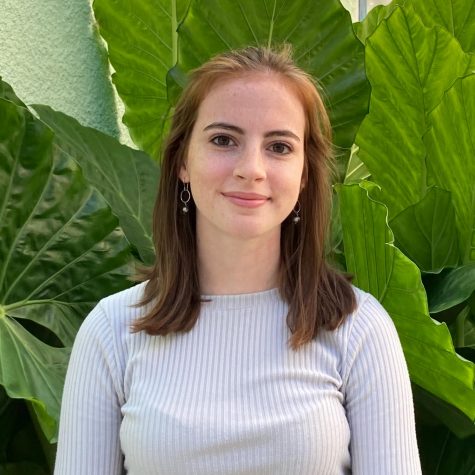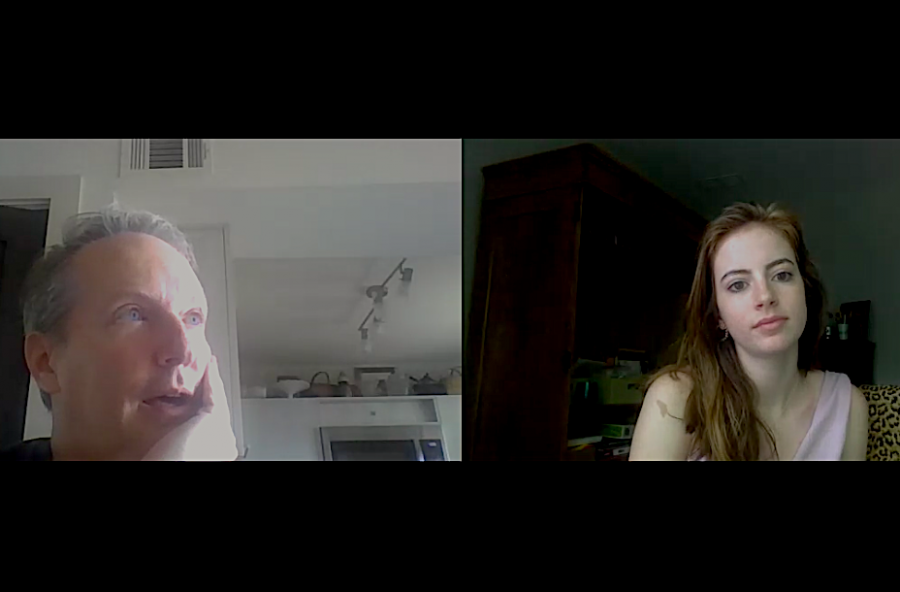Pandemics in history: A “sit-down” with Lee Pope, AP US History teacher
The Southerner staffer Elena Hubert interviews Advanced Placement US History teacher Lee Pope on COVID-19 using Zoom, an online meeting platform.
Lee Pope has taught Advanced Placement US History since 1999 and at Grady for 13 years. The Southerner spoke to him to find out about historical parallels of the COVID-19 pandemic and what Americans can expect from it as a result of these parallels.
Was there a worldwide pandemic that you believe is similar to the COVID-19 virus?
“Yes, you know, on different scales, I mean which ones did we have that we didn’t record? It’s so different now because we’re so globally connected. Historically, if you take it back to the bubonic plague epidemic, another plague that came out of Asia, but if you remember in history, it came on ships into Italy where it hit first on fleas on rats. The bubonic plague took hundreds of years and there were waves, so if you think of it from that perspective, you think of the slow modes of transportation then and the fast modes of transportation today and the global connectivity that we have, naturally it’s going to spread faster.”
“You think about the Spanish influenza, that everyone keeps coming back to, at the turn of the 20th century during World War I. The Spanish influenza was called the “Spanish flu” because Spain was a neutral country during the war, so they were the only nation that was actually reporting on the flu because there was a blackout, or ban, in the press of talking about things that could weaken Germany or France or England, the Spanish influenza might have not been as big as it was had it not been for World War I and everyone being connected in those trenches.”
“I think that we can look at a lot of pandemics that we’ve had throughout history, but this one’s spreading like wildfire, this time because of our connectivity.”
How did the U.S. move past the Spanish influenza?
“It played itself out. My grandmother told stories about …i n her hometown, Goodwater, Ala., there was and is a casket factory. The big problem during the pandemic, at least in rural Alabama and the South, was there weren’t enough caskets to bury the dead. She said as a little girl, she remembered caskets being lined up at the train depot to be shipped out of Goodwater and go across the country to help bury all of the people that had died from it.”
After the Black Plague in Europe, the Renaissance began and there was a huge push towards the patronage of the arts and literature. The Spanish flu of 1918 and 1919 was followed by the Roaring ’20s, where “American” culture flourished through the Harlem Renaissance, blockbuster films, and the “Lost Generation” of writers. Even though, as of right now, the COVID-19 outbreak is at a smaller scale than both examples, what effect do you believe it will have on American culture?
“I think that there probably will be a flourishing of arts and entertainment following this. We desperately need that right now. We need an escape, and that void is going to have to be filled. Broadway has shuttered. There won’t be movies produced over the next month, and I thought about Broadway getting shut down and entertainment venues going away. “Mulan” has stopped the release; they’re not going to release until July because of [the COVID-19 outbreak]. I think that there is going to be [a flourishing of the arts]. I think it’s a natural reaction…”
Former Representative Tim Roemer, a member of Congress’ 9/11 Commission, spoke on COVID-19, stating, “It’s as important, if not more important, than 9/11.” If this outbreak has a similar impact on Americans as that of 9/11, what could we foresee happening?
“I think to compare this to 9/11, it cheapens the experience and the memory of those of us who lost people in the Twin Towers. It’s really not fair for people to compare the two. It’s different.”
“Now, the similarity to what is going on: our world is forever changed. Now, I believe they’re going to start taking our temperatures before we get on planes. There was a story this morning on CNN on a method that they’re using in China. As Wuhan comes out of quarantine, they are using QR codes. Everybody has to register, and they get a number that relates to a QR code. You have to show it before you go into public venues, before you go into restaurants, before you get on airplanes and before you go between provinces.”
“They’re tracking people. The world is going to change again, as it did after 9/11, to protect humanity. I think that new measures will be put in place. With 9/11, you knew who you were looking for, you looked for planes, you looked for bombs. This isn’t a bomb. This isn’t an airplane. This isn’t a human being. This is invisible. Therefore, you are going to see stepped-up methods of screening that we haven’t seen before. It’s Big Brother. It’s George Orwell.”
The Chief of the United Nations recently warned of a looming global recession “perhaps of record dimensions.” The Associated Press reported today (April 9) that “10% of the US labor force is now out of work since the virus slammed the economy as 6.6 million file for jobless aid.” How is what we are seeing now comparable to the Great Depression?
“I don’t think we are there yet. I think that we are going to get there if this continues. I may selfishly say that I haven’t seen that line yet. Here’s what I would say. On the economic end, I’m not positive. I don’t know where this is going. It scares me to think of where it’s going economically. I worry about people in the service industries: waiters, waitresses and New York taxi drivers.”
“Here is where I am proud of us as Americans: those who have that are helping those who have not. Tyler Perry went into Krogers and Publix grocery stores around the city [Atlanta] and paid thousands and thousands of dollars just to pay for people’s groceries. It’s some sort of “Angel Program.” I think it’s fantastic that as people, those who have are helping those who have not.”
“I don’t think that if we do have an economic depression, it will last as long as it did before. I think that this stimulus check is a good start, but I don’t think it’s enough for people who are unemployed. I also think that it is going to people who aren’t unemployed.
“Personally, I haven’t had a salary decrease. I’m still getting paid. I’m still doing my job from a distance. I don’t deserve a check. Some people who are getting a check don’t deserve a check. This needs to, in my opinion, go through the unemployment agency and needs to give to people who are truly in need. I think that some people who aren’t in need are going to collect, and that is going to be an economic drain on all of us.”

Elena is a senior and a co-editor-in-chief of the Southerner. As the captain of both the varsity cross country and public forum debate teams, she can most...

